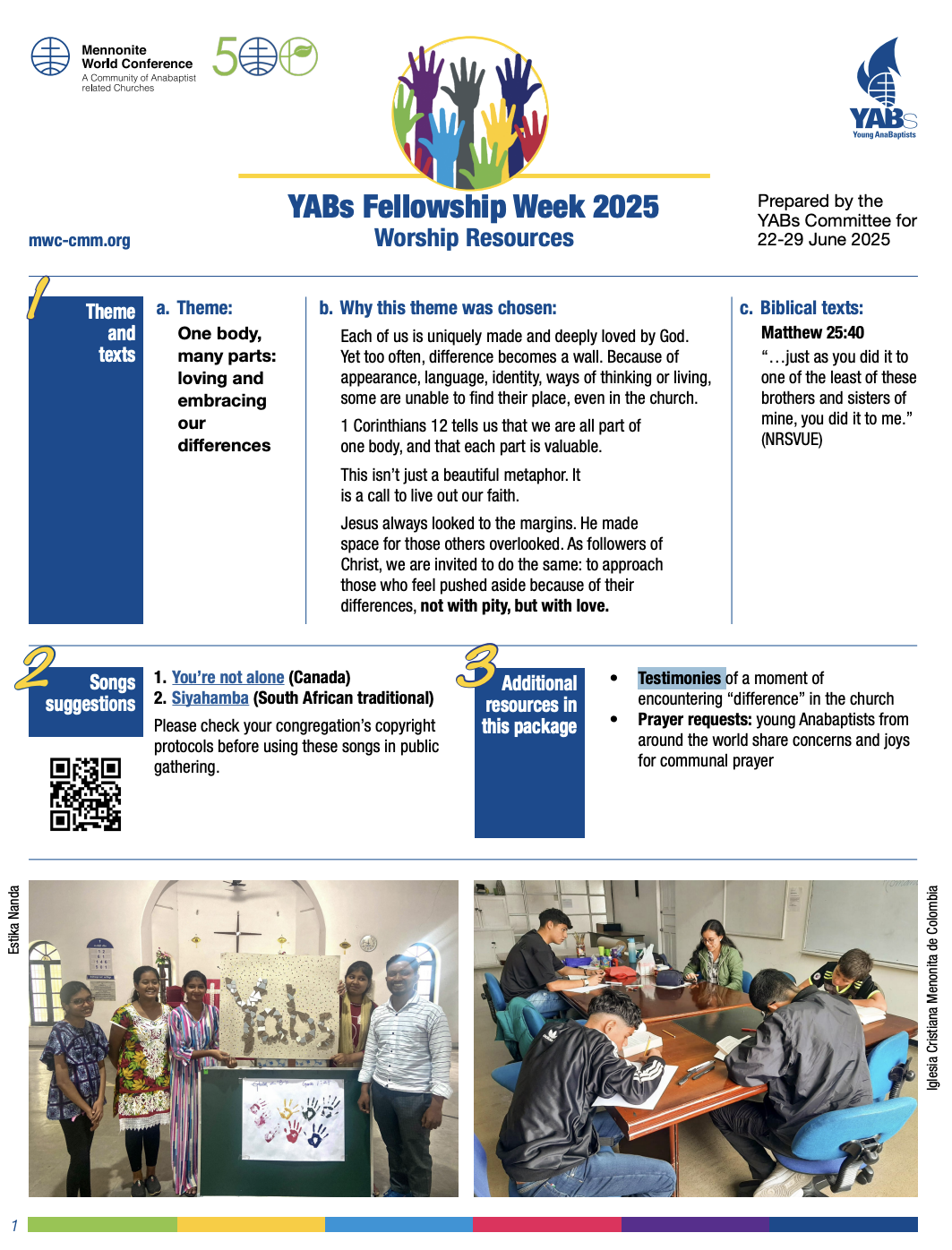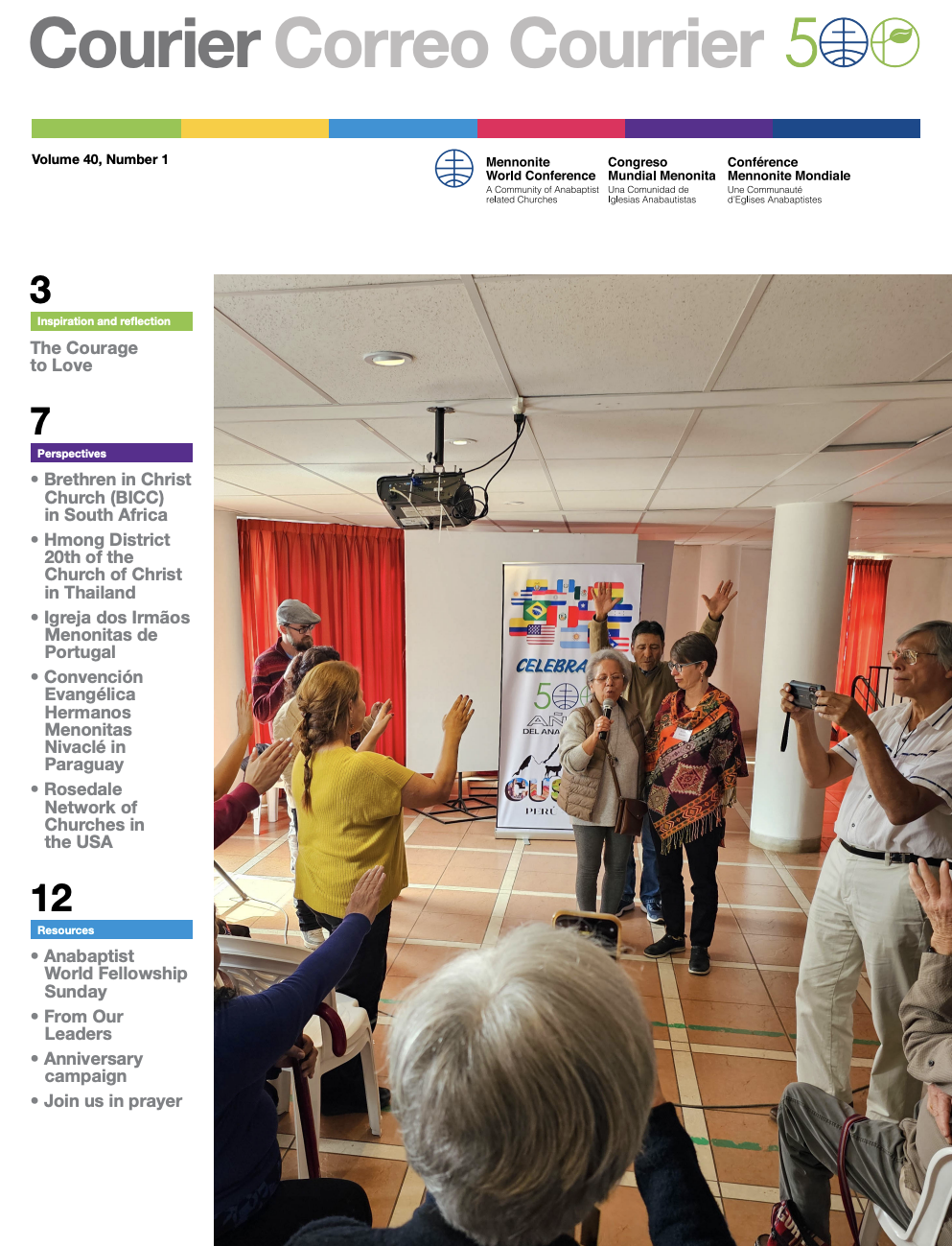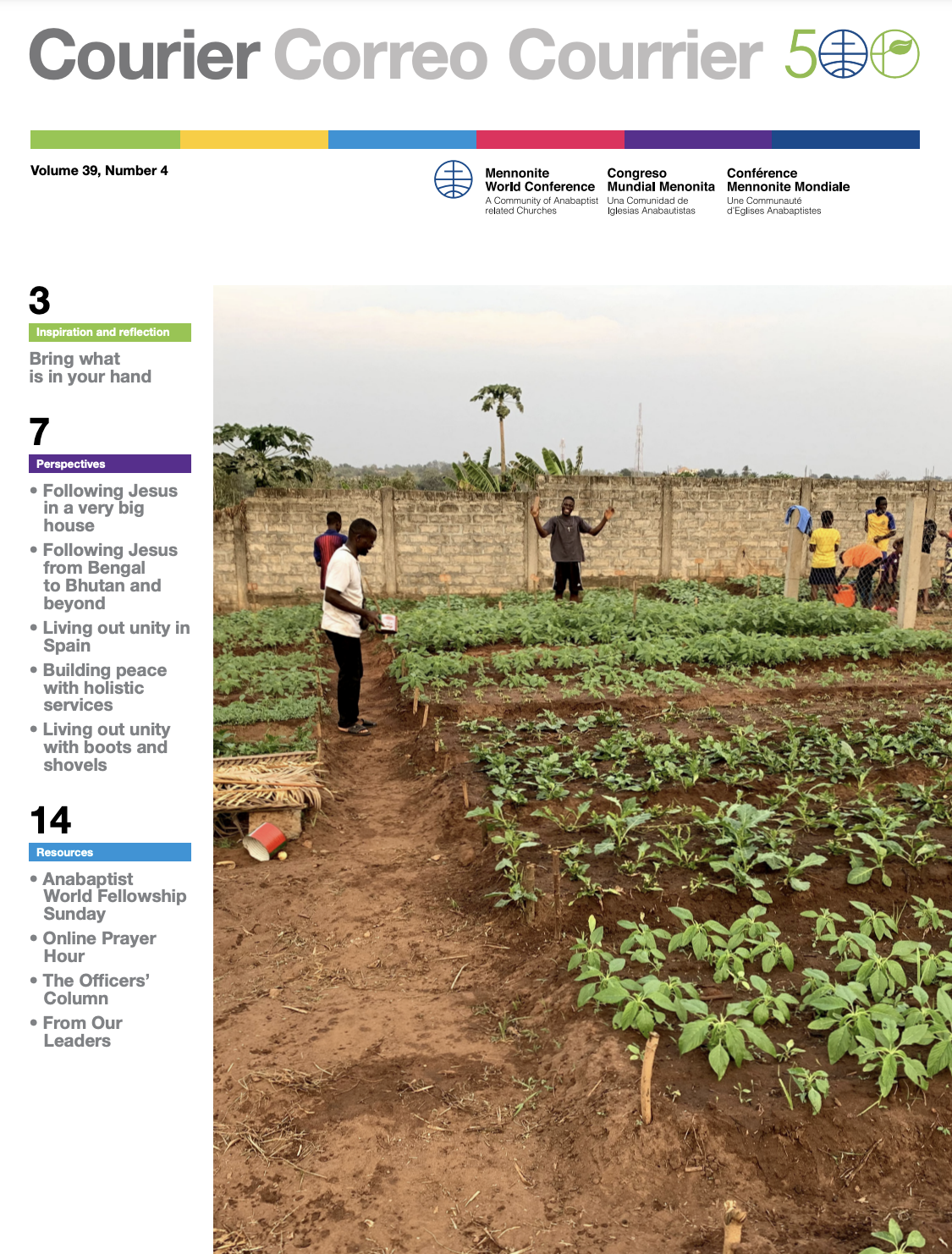-
MWC annual report 2024
To receive a copy of the audited financial statements, please email a request to info@mwc-cmm.org.
-
YABs Fellowship Week 2025
Prepared by the YABs Committee for 22-29 June 2025 Theme: One body, many parts: loving and embracing our differences (Matthew 25:40). Why this theme was chosen: Each of us is uniquely made and deeply loved by God. Yet too often, difference becomes a wall. Because of appearance, language, identity, ways of thinking or living, some
-
Courier 2025 / 40.1
A challenge for the ages It’s a double – even triple – anniversary for Mennonite World Conference this year. For one hundred years, Anabaptist-related national churches have been meeting together to acknowledge we are one body of Christ together, and to encourage and help each other in fellowship, worship, service and witness. For five hundred
-
Restoring Our Family to Wholeness study guide
A guide for study, worship and dialogue “Restoring Our Family to Wholeness: Seeking a Common Witness”
-
Biblical and Theological Reflections on the MWC Tagline
Presented by Thomas R. Yoder Neufeld to the MWC Executive Committee at their meeting in Curitiba, Brazil, in April 2024. I. Following Jesus – “Who do you say that I am?” Introduction A year ago, at Camp Squeah in British Columbia, Canada, the EC developed a new tagline for the MWC: “Following Jesus, living out
-
Courier 2024 / 39.4
A foretaste of the kingdom “Let’s think as citizens of a new nation in which there is not a gap between rich and poor, but where economic equality exists between all people. “Let’s think as citizens of a new nation in which there is not racial discrimination, but where cultural diversity is affirmed and celebrated.
-
Anabaptist World Fellowship Sunday 2025
Theme The Courage to Love Why this theme was chosen The first baptisms in the Anabaptist tradition took place in secret in Zurich, Switzerland, on 21 January 1525. A small group of Jesus-followers acted together with courage on their shared understanding of Scripture and the church, different from their political and religious context. Today there
-
Speaker’s bureau
Invite the global church into your congregation! MWC member congregations are welcome to invite one MWC speaker per year to bring a message from the global Anabaptist-Mennonite family. This may be for Anabaptist World Fellowship Sunday, Peace Sunday or any day you wish to give special attention to the global family. Please consider giving an
-
The ‘Anabaptist Tradition’ – Reclaiming its gifts, heeding its weaknesses
A teaching resource from the Faith and Life Commission What does it mean for member churches of Mennonite World Conference to share anAnabaptist identity? What is the value of Anabaptist “tradition” – and what does that wordmean in a global context? What are our Anabaptist understandings of mission andfellowship? In 2009, the newly appointed Faith
-
Song videos from Asia for AWFS
Member churches in Asia do not use any of the three official languages in MWC. Their worship music includes many songs that are not translated into any of MWC’s three languages. These are videos of songs frequently used in local congregations which MWC congregations are encouraged to use during their own worship, as prelude or
-
Peace Sunday 2024 – worship resource
Theme Kintsukuroi: The broken vessel is often more beautiful than the original Why this theme was chosen 2 Corinthians 4:7 describes the gospel as a “treasure” in “clay jars.” These humble vessels bring to mind the Japanese tradition of kintsukuroi that creates (or recreates) pottery from broken pieces. Damaged vessels are put back together, often


